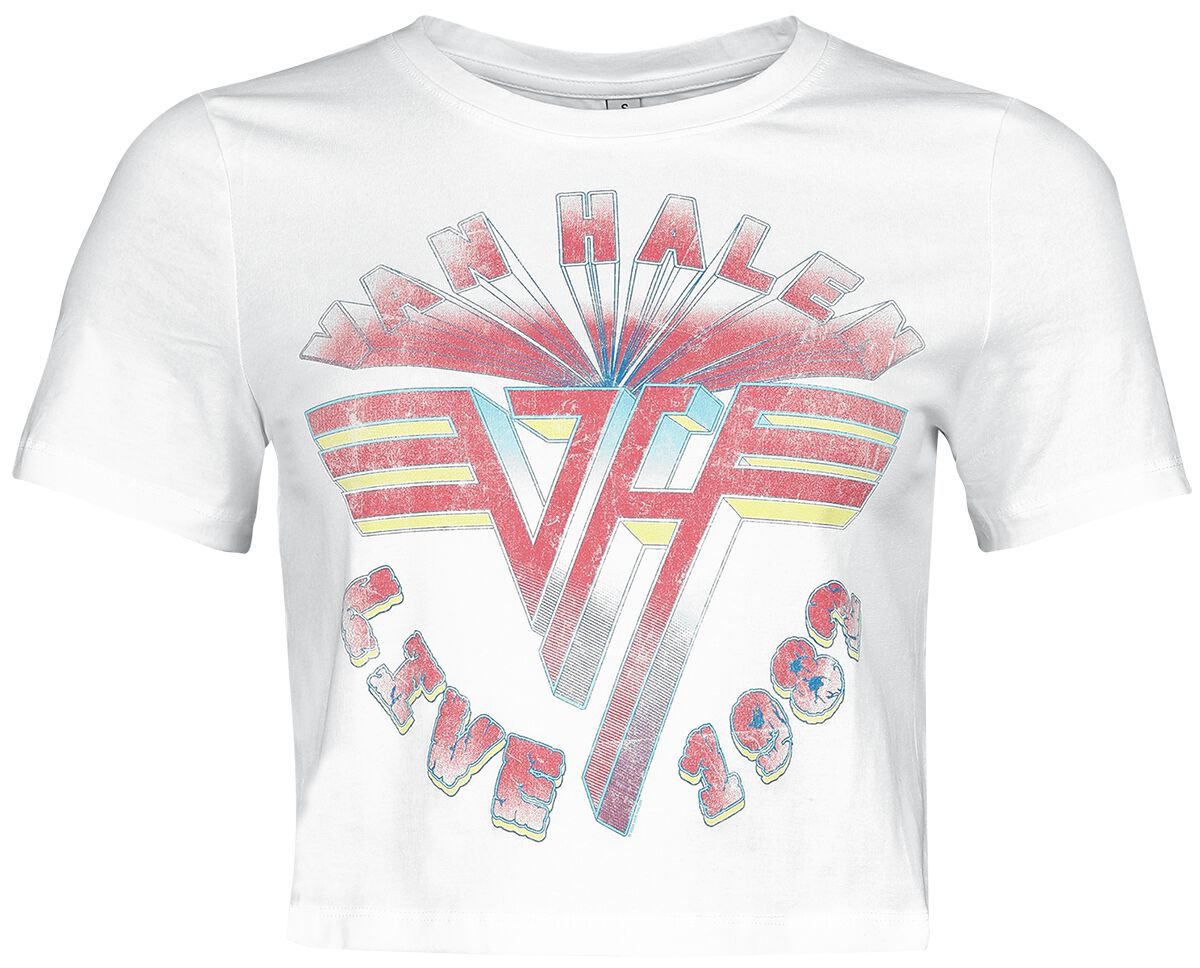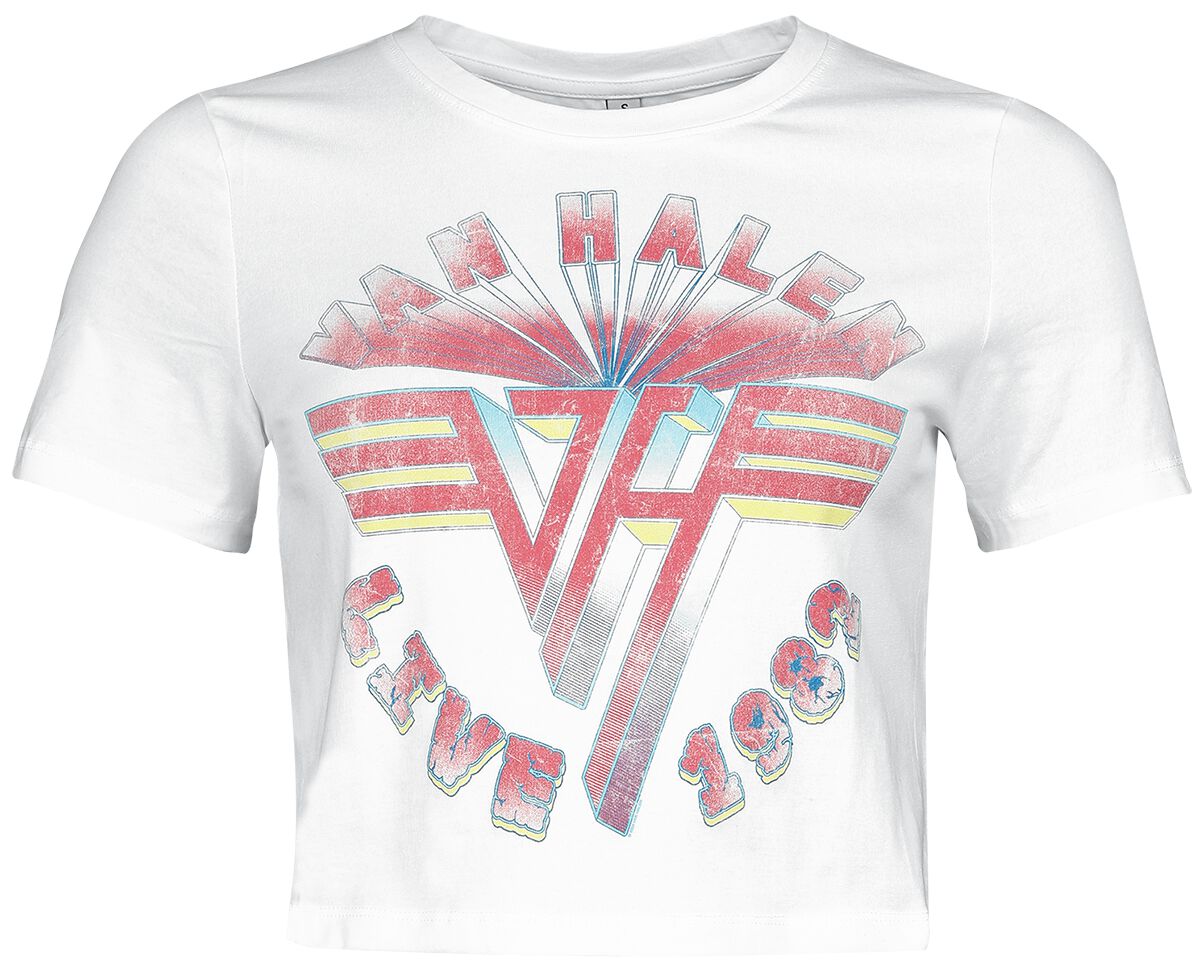Immerse yourself in the electrifying legacy of Van Halen, the quintessential American hard rock band that redefined guitar playing and became a global phenomenon. Formed in Pasadena, California, in 1972, this powerhouse group, most famously featuring the dynamic duo of Eddie Van Halen (guitar virtuoso) and David Lee Roth (charismatic frontman), alongside Alex Van Halen (drums) and Michael Anthony (bass), injected pure exhilaration and technical brilliance into the rock music landscape.
The band’s origins trace back to the Van Halen brothers, Eddie and Alex, who were born in Amsterdam and moved to Pasadena, California, in 1962. Interestingly, Eddie initially played drums and Alex played guitar, a setup they eventually swapped. They formed various bands before settling on Mammoth, which briefly featured Eddie on lead vocals. It was the addition of the flamboyant David Lee Roth, who used to rent his PA system to the band, and bassist Michael Anthony that solidified the classic lineup, leading to the name change to Van Halen in 1974.
Their relentless dedication to live performance in the bustling Southern California club scene honed their skills and built a formidable local following. This groundwork culminated in the release of their self-titled debut album, Van Halen, in 1978. This record wasn’t just an album; it was a seismic event in rock and roll. Featuring classics like “Runnin’ with the Devil,” the high-energy cover of The Kinks’ “You Really Got Me,” and the instrumental masterpiece “Eruption,” the album showcased Eddie Van Halen’s groundbreaking two-hand tapping technique and redefined what was possible on an electric guitar. Despite initial mixed critical reception, Van Halen quickly went platinum and is now widely considered one of the greatest debut albums in music history.
Eddie Van Halen’s influence cannot be overstated. He didn’t just play guitar; he innovated. His “Brown Sound” a thick, resonant, yet articulate guitar tone became highly sought after, and his pioneering use of effects and techniques forever changed guitar playing. An interesting fact about “Eruption” is that it was originally just a spontaneous guitar solo that Eddie would perform live, never intended for an album. Producer Ted Templeman insisted it be recorded, and Eddie reportedly still believed he made a mistake at the top end of the track a “mistake” that left generations of guitarists in awe.
The Roth-era of Van Halen was marked by a series of massively successful albums, including Van Halen II (1979), Fair Warning (1981), and the monumental 1984 (1984). 1984 saw the band incorporating more synthesizers, most notably on their only Billboard Hot 100 number-one hit, “Jump,” a track that showcased their versatility and ability to blend their signature hard rock with pop sensibilities. This period was defined by Roth’s larger-than-life stage presence, acrobatic leaps, and witty banter, perfectly complementing Eddie’s musical wizardry.
The band faced a significant shift in 1985 when David Lee Roth departed to pursue a solo career, leading to the recruitment of former Montrose frontman Sammy Hagar. The “Van Hagar” era brought a more melodic, arena-rock sound, yielding further multi-platinum success with albums like 5150 (1986), which debuted at number one, and hits such as “Why Can’t This Be Love” and “Right Now.” The latter’s impactful music video and socially conscious lyrics resonated deeply, proving Van Halen’s adaptability.
Despite numerous lineup changes and periods of hiatus, including a brief stint with Gary Cherone on vocals, the core dynamic of the Van Halen brothers remained until Eddie’s tragic passing in 2020 after a long battle with cancer. Even after all these years, Van Halen’s music continues to be celebrated, their albums selling millions, and their songs frequently featured in films, video games, and commercials. The enduring appeal of their unique blend of raw power, intricate musicianship, and sheer joy in performance ensures that Van Halen remains a cornerstone of rock history and a powerful influence on heavy music to this day.






















